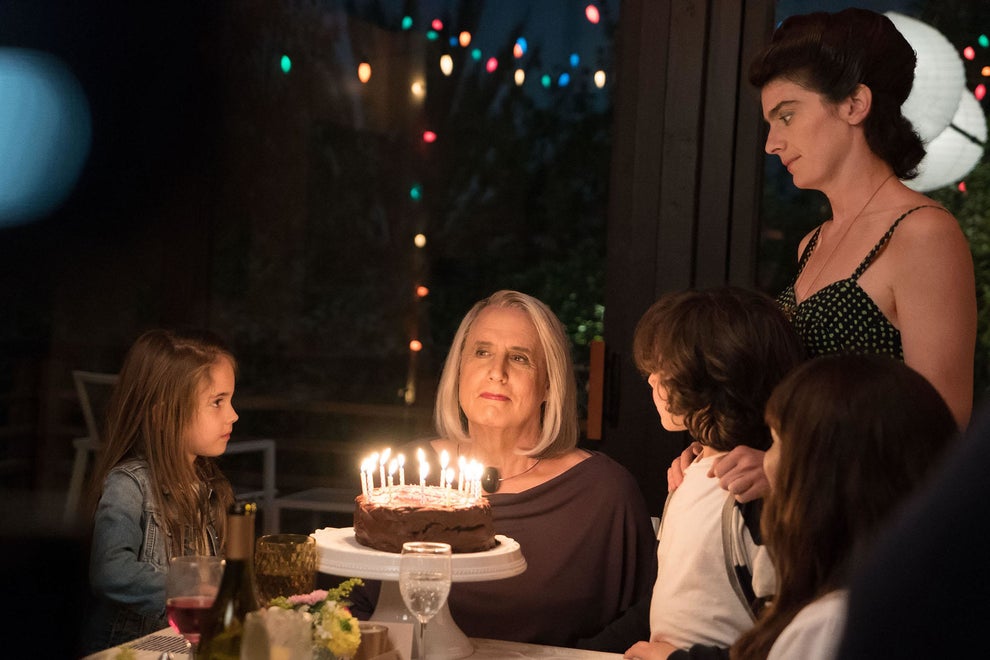
Strikers march during the 2007-8 writers strike at the Paramount Pictures gates. Charley Gallay / Getty Images
The Writers Guild of America, the union that represents the writers of all the shows you watch and movies you see, is currently negotiating its contract with the AMPTP (the Alliance of Motion Picture and Television Producers), more simply referred to as “the studios.” The current contract expires May 1.
The WGA claims that the six largest media companies — Disney, Comcast, Time Warner, Fox, CBS, and Viacom — collectively made $51 billion in profits last year. And the AMPTP, which has often cried poor as a negotiating strategy, pretty much agrees! Which is a good start for the WGA, and tonally very different from the last negotiation, which resulted in the 2007-8 writers strike that lasted 100 days.
There is a pretty good chance that the WGA and the AMPTP will come to an agreement and there won’t be a strike. And that would be great news, because the previous strike was financially devastating — to individual writers, to production workers, and to the economies of the cities where movies and TV shows are filmed.
While it’s impossible to say whether a strike this time would follow the same pattern as the last one, the ripple effects would surely be dramatic. Talk shows would probably stop immediately, and any scripted shows in production might also shut down, because the actors and union crews wouldn’t be likely to cross the picket lines. Saturday Night Live would be done for the season. This time around, May happens to be when staffing seasons occurs for all the networks’ new shows, so a strike could affect not just the current TV season, but the next one as well.
Right now, the television industry is booming and in a state of revolutionary flux. So-called “peak TV,” a term FX CEO John Landgraf coined in reference to the seemingly endless explosion of scripted television, resulted in a total of 454 shows in 2016 — more than double the number of shows in production during the last writers strike. With so much innovation in how viewers consume television, the focus of the WGA’s demands is largely geared toward TV, and not film. The movie industry is certainly changing, but not in the same seismic way.
The concerns of television writers, however, aren’t the only thing at stake in this negotiation. Like all Americans, the WGA is deeply concerned with health insurance. As Ken Levine, a television writer who has worked on classic shows like M*A*S*H and Cheers, wrote on his blog, “replenishing the health fund is the one issue that every writer will strike for and will stay out for as long as it takes.” The results of the strike authorization vote among WGA members was released Monday, and it was a resounding 96%. The membership is united.
The negotiations continue all this week (and through the weekend), and if there is a strike, it will begin on May 2. Below are the WGA’s key demands, though it’s worth noting that the Guild will not reveal what the current status of each is or whether any of them have been resolved or taken off the table.
1. Higher pay — and being paid for time, rather than per episode.
Members of the Screen Actors Guild join striking writers in a display of unity outside Fox Studios on Jan. 28, 2008. Charley Gallay / Getty Images
While we can all agree that the quality of television has never been higher, that excellence has taken a toll on writers’ salaries. Writers are paid per episode, and 22-episode seasons, once the norm, are now a rarity seen only the broadcast networks — CBS, ABC, NBC, The CW, and Fox. In cable and on streaming services, it’s common for seasons to be much shorter. Netflix usually orders 13-episode seasons, but even that shortened order is uncommon these days. For instance, Amazon’s Transparent has 10-episode seasons, and so does AMC’s Better Call Saul. HBO’s Game of Thrones has generally had 10-episode seasons too, but its upcoming seventh season will be only 7 episodes long. But usually, even with short seasons, writers are still working the same, or similar, lengths of time as a full network show season — and not being paid more for it. According to the WGA, writers’ salaries have decreased by 23% in the past two years, mostly because of this issue. (But others too! See below.) The WGA wants to solve the problem by tying salary to two weeks of work, rather than how many episodes are in a season.
There’s also a pay disparity in the minimums for script fees that the WGA seeks to eliminate. Networks and premium cable are the highest, with basic cable and The CW being less — and Netflix, Amazon, and Hulu falling in between. The WGA wants to level those differences.
2. Increased compensation for writers for shows airing on streaming services, both subscription-based and advertising-based.
The Walking Dead is scheduled to begin production on Season 8 on May 1. AMC
Having fewer reruns is great for viewers, right? Of course. But the trend is less great for writers, who used to rely on the money writers — and actors, producers, and directors — get each time their episode repeats, called residuals. For AVOD, which is ad-based video on demand — such as the networks’ and cable companies’ websites on which you can watch full episodes with commercials, or Hulu with ads — the compensation is now very low, having not been much of a factor in the last negotiation. The WGA is seeking more money for AVOD usage, on a per-stream basis.
The WGA also seeks to renegotiate SVOD payments. Subscription-based video-on-demand services — meaning Netflix, Amazon Prime, Hulu’s paid subscription tier, CBS All Access without ads, etc. — are the way to watch and rewatch shows, and until now, they have poorly compensated writers. But earlier this year, the Directors Guild of America ratified a new contract that has increased compensation for SVOD. Under the old contract, over a three-year period of a show being on a streaming service, directors would get less than $15,000 in residuals — under the new contract, that more than triples to $50,000 for three years. The WGA will likely be offered something similar.
3. Preserving health care, increasing pension contributions, and establishing family leave.
Season 7 of Game of Thrones will be 7 episodes. Helen Sloan
Currently, the WGA has a very generous health insurance plan. Unfortunately, it’s going broke because of rising health care costs, and it’s not being funded at a commensurate rate with those escalations. The AMPTP has been paying into the health plan at the current rate of inflation, rather than the current spikes in health care inflation — very different things. Unless that changes, the fund will be insolvent within three years. The Guild is also asking for increased contributions to the pension plan, and paid family leave. Yes, paid family leave! Under the current contract, maternity and paternity leave aren’t covered at all — if you have a kid and work on a television show, and you want time off, it’s on your dime. Nor is there any guarantee your job will be there when you come back.
4. Elimination of exclusivity clauses in contracts, so when writers are in between seasons, they can seek other staffing jobs.
Transparent, which has 10-episode seasons. Amazon Studios
Exclusive contracts may make sense for shows that have 22 episodes. But they most definitely do not for shows with seasons that are 8, 10, or 13 episodes — because if a show hasn’t been renewed yet, or won’t be starting again for months, a writer can’t try to get another job without getting permission. Even if the timing would fit in perfectly with the other show they work on! The WGA wants to get rid of exclusivity provisions.






